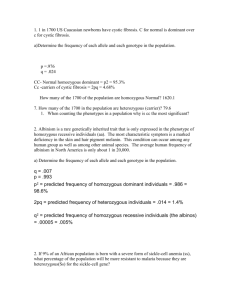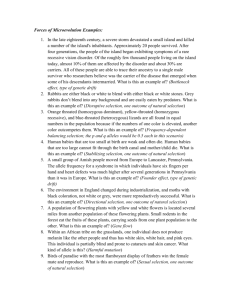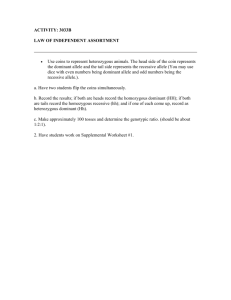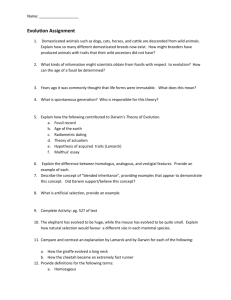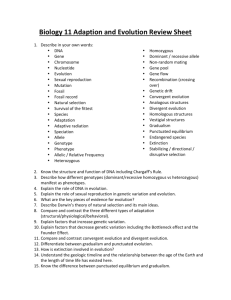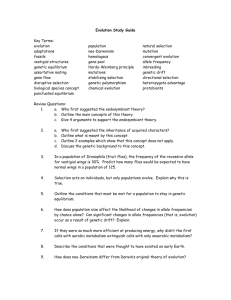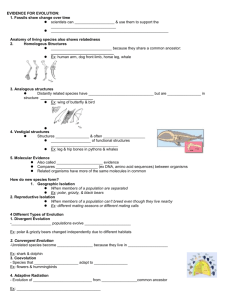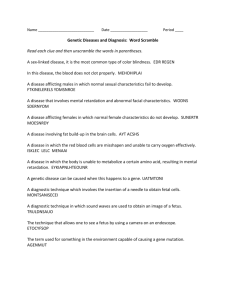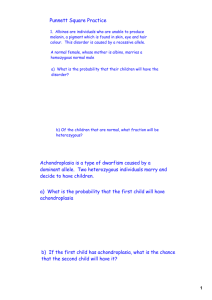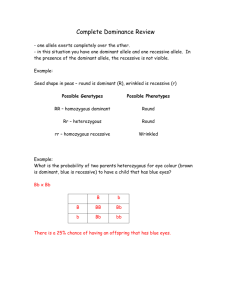L6 inherited diseases
advertisement
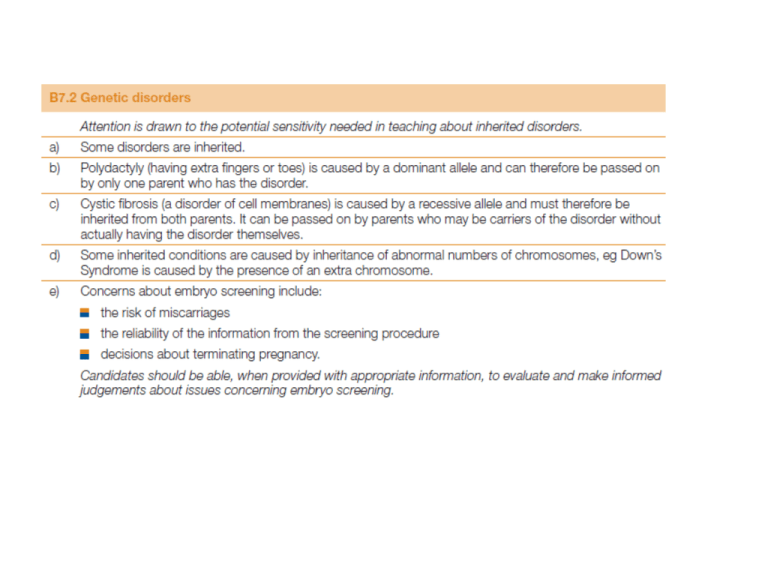
Key words and definitions- sort them out! • Each gene has the code to make a protein. • Bases are grouped into 3’s. • A sequence of 3 bases codes for an amino acid. • The order of bases controls the order of amino acid in the protein. Inheritance and genetic disorders Learning Objective: In order to be successful in this lesson you must be able to: Explain that some genetic disorders are caused by the inheritance of an abnormal number of chromosomes Inheritance and genetic disorders State that some disorders are inherited Explain that polydactyly is caused by a dominant allele and cystic fibrosis by a recessive allele PROGRESS Explain that some genetic disorders are caused by the inheritance of an abnormal number of chromosomes Genetic diagrams- key words recessive allele homozygous heterozygous dominant Cystic fibrosis • Cystic fibrosis is an inherited disorder of cell membranes that mainly affects the lungs and Causes the production of pancreas. thick sticky mucus • It is caused by a recessive allele. In a genetic diagram: - the recessive allele can be shown as f - the dominant allele can be shown as F Someone who is homozygous (ff) for the recessive allele will develop cystic fibrosis. Someone who is heterozygous (Ff) or homozygous for the dominant allele (FF) will not develop cystic fibrosis. Parent phenotype: heterozygous x heterozygous Next draw out Parent genotype: a genetic cross for a Gametes: homozygous dominant Punnett square: mother and a heterozygous father Outcome: The chance of them producing a child with cystic fibrosis is 1 in 4, or 25%. The parents are carriers of the disorder, as it is possible for them to produce a child with cystic fibrosis, without having it themselves. Polydactyly Polydactyly is an inherited condition in which a person has extra fingers or toes. It is caused by a dominant allele of a gene. This means it can be passed on by just one parent if they have the disorder. Polydactyly: Genetic cross Mother has polydactyly and has and is heterozygous; father does not have polydactyly Parent phenotype: Parent genotype: Gametes: Punnett square: Outcome: Down syndrome: a chromosomal disorder Down syndrome is a developmental disorder caused by an extra copy of chromosome 21 (which is why the disorder is also called "trisomy 21"). Having an extra copy of this chromosome means that individuals have three copies of each of its genes instead of two, making it difficult for cells to properly control how much protein is made. Producing too much or too little protein can have serious consequences. http://learn.genetics.utah.edu/content/disorders/chromosomal/down/
